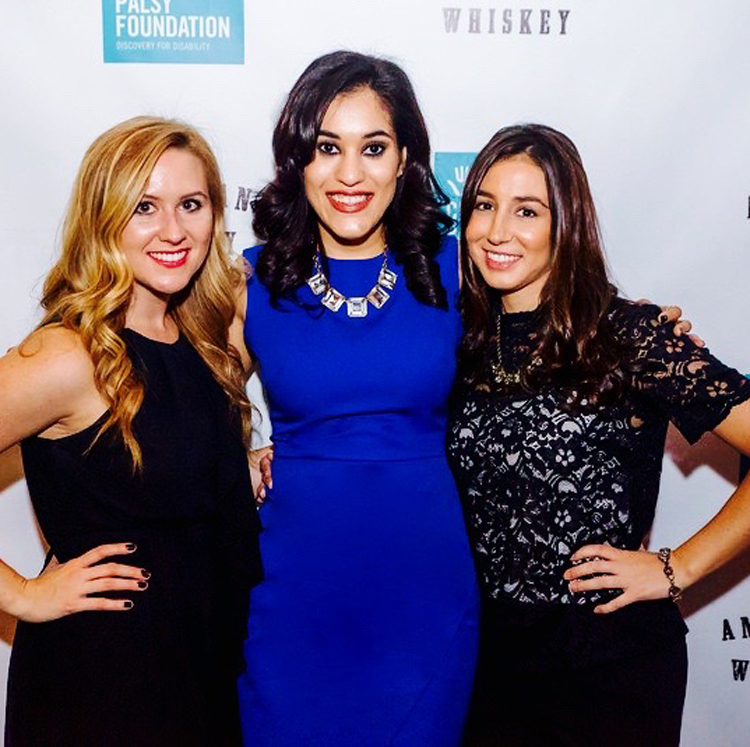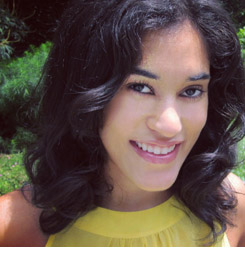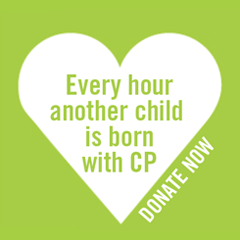
Phone: 212 520 1686
Email: info@yourcpf.org
CPF Young Professionals
In September 2013, shortly after discovering her own CP diagnosis, Dalila Castillo founded the Young Professionals Committee (YPC) of the Cerebral Palsy Foundation. The YPC is a group of young men and women dedicated to philanthropic giving and raising awareness about CP.
Dalila’s Story: “A New Direction: Discovering My Cerebral Palsy” (publication date July 23, 2013)
Have you ever felt different? If you’ve lived at least one day as an adolescent, chances are, the answer is yes. I am no exception, as my physical weakness provides a constant reminder of what makes me different. I’ve been asked, “why do you walk like that?” countless times and I didn’t have a solid answer up until recently. I never fully understood why, and was ashamed of the fact that I couldn’t complete certain tasks like everyone else could. I’ve always known that I have a condition that creates challenges for me. I’m accustomed to the discomfort — the aches, pains and muscle stiffness that came along with the condition and I constantly tried to overcompensate for my shortcomings. What makes all of this especially unique is that I grew up not knowing exactly what caused me to walk “like that.”
I was born three and a half months early due to a premature membrane rupture and until a couple of months ago, all I knew was there were complications during my birth that caused my condition. Last October, after graduating from law school and sitting for the bar exam, I finally mustered up the courage to search for the details. To start, I requested my medical records from the Hospital of Special Surgery, where I had surgery and went to physical therapy as a child. I will never forget the feeling of anticipation and anxiety I had when the thick manila envelope finally arrived and was in my hands. Opening the envelope evoked feelings not unlike those I had when I opened my college and law school admission envelopes, only this time, instead of telling me where I was going, somewhere in these 150 pages of medical history, I would learn where I had been.
There it was. In the center of the first page in black and white, Diagnosis: Cerebral Palsy (CP). I have CP. My first reaction was bittersweet; a medley of excitement and relief. I was excited to be closer to understanding this part of who I am. I am ashamed to admit that I was also taken aback because I had fallen victim to the common misconception that people with CP were low functioning and constrained to wheelchairs. Recognizing my ignorance, I grabbed a pen and legal pad and began reading the file, taking notes and “googling” medical terms like my life depended on it. I now know that CP affects people on a wide spectrum, just like autism and any other brain disorder. I myself have mild spastic diplegia, which means that I am affected in my lower extremities and endure muscle stiffness and involuntary leg spasms. I also know that CP results from a brain injury during either a baby’s development in the womb, during the birthing process or during infancy and it may not be perceptible until months after birth. An undetected infection during the mother’s pregnancy, severe oxygen deprivation during the baby’s delivery, low birth weight or any brain damage occurring after the baby’s birth are some causes of brain injuries that can lead to CP.
You might be wondering how is it that I didn’t know of my diagnosis until age twenty-five. My parents were both aware that I was born with CP, but they chose not to share that specific information with me. Since I have a minor case, they felt that I did not need to know. So instead, whenever I would fall down or otherwise feel like an outlier, my mother would remind me that every person has a struggle, an invisible scar, and this was mine. She would tell me that my condition actually made me just like everyone else.
Flipping through the pages of my medical record, I learned more about my past: things like, I weighed approximately 1 pound 15 ounces at birth and remained in neonatal intensive care for three months where I was supported with oxygen through a nasal tube. As well as other information such as, my mother first noticed my disability when I was about ten months old. I was unable to crawl on my hands and knees and could only crawl commando style (using my forearms to drag my body across the floor). She also saw minor delays in my motor and cognitive skills; for example, I didn’t say my first word until around two years old and when I sat in a chair, I tended to tilt to one side and could not feed or dress myself properly.
But, I of course have little recollection of any of those early developmental struggles. I do, however, remember having to go to the doctor frequently and having surgery on both of my Achilles Tendons when I was five years old to loosen the muscles and allow me to walk with a flatter foot. After surgery, I had to face the difficult task of building up enough strength to use my legs and then, once I did, having to walk with a walker. I also remember feeling confused that I had to go through so much just to be able to move one foot in front of the other.
As a child, I constantly fell down and scraped my knees. After having surgery to lengthen my muscles, I attended weekly physical therapy sessions, had to wear orthotics in my shoes, leg braces at night and had to do heel cords stretches every day. My mobility increased tremendously thanks to all of these efforts, but, despite my progress, there is no cure for CP so I was still weaker than my classmates. I was teased and constantly felt left out and out of place, because I couldn’t participate in “normal” kid activities from skipping around in gym class to roller-blading with all of my cousins on a Sunday afternoon. The only way I can think to explain is I felt as if I did not control my legs, but instead that they controlled me. I was constantly self-conscious about what I couldn’t do gracefully or at all because of my condition.
When I was a teenager, I realized that I wasn’t gaining anything by using the weakness in my legs as an excuse, and it was then that I decided to try to run track and cross country my freshman year of high school. I pushed myself and my body to the absolute limit and in doing so, I learned that even if I can’t complete some tasks like most people, doing them in my modified form is so much better than not doing them at all, as long as I know I can do them without getting hurt.
Now as a young adult, I know how important it is to listen to my body. So to make things a bit easier on myself, I make it a priority to stretch and exercise, especially my leg muscles. But like anyone else, I have good days and bad days. I can get to point A to point B on my own, and I know that I am extremely lucky for that, but I still have to plan how I will get from one place to another with the least amount of discomfort. In other words, I have to choose my shoes carefully, as well as consider how much I will carry with me and how far I have to go before I can leave (whether it be by foot, car or public transportation). I’m not exactly sure how CP will affect me as my bones and muscles age, but I am confident that I will be able to handle it and adjust, just as I have in the past.
I’ve always perceived my condition as both a blessing and a burden. A burden because there are times when I imagine certain tasks and social situations would be much easier if I could just be “normal.” But when I really reflect on it all, I see that it is also a blessing because if I didn’t have CP and didn’t have to overcome constant tests of my physical and emotional strength, I wouldn’t be the ambitious, empathetic person who is writing this article today.
I say all of this to say: we are all different. We all have our struggles and can choose how to perceive them. As I mentioned earlier, learning that I had CP provided a sense of relief because I no longer feel in isolation, alone, or like I have a secret to hide; now, I am a part of the CP community. Thanks to the immense amount of love and support I’ve received from my family and friends after sharing my story with them, I’ve learned that my CP can be a positive impetus. I have chosen to view my recent discovery of the diagnosis as an opportunity –- an opportunity to share my story, to let people know what it means to have CP, and ultimately, to make an impact and empower others. In an effort to seize this opportunity, I connected with the Cerebral Palsy Foundation (CPF) via my social media pages and I am pleased and excited to help educate and inform younger generations about CP and CPF as the founding Chairperson of the Young Professional Committee (YPC). The YPC raises awareness and funds for CPF’s research programs through fun social events. If you are interested in learning more about getting involved with the YPC, please contact me directly at dalilacastillo103@gmail.com or through the CPF office by calling (212) 520-1686.







